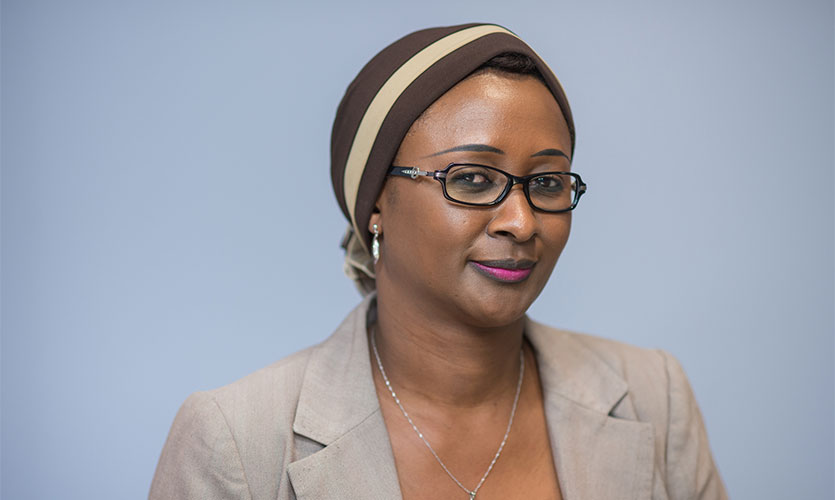Mental health lecturer launches website to help medical professionals support asylum seekers and refugees

Philomene Uwamaliya, who is herself a refugee, won a Mary Seacole Leadership Award in 2016 to create the site. The awards provide opportunities for individuals to undertake a specific health care project, educational or development activity that benefits and improves the health outcomes of people from black and minority ethnic (BME) communities.
Philomene fled Rwanda with her family after the genocide in 1994, when they arrived in England they faced language barriers to accessing services while also dealing with the trauma of their experiences.
The idea to create an online resource hub was sparked by Philomene’s own personal experiences alongside her career in the health industry.
The majority of asylum seekers and refugees come to the UK from developing countries where there is abuse of human rights, war and conflict; as well as a lack of health care and basic resources. Their journey to safety will be long and gruelling often exposing them to physical trauma and sexual violence, increasing the risks of physical and mental health problems.
However, fears of deportation and lack of knowledge about services available create barriers to accessing health care in the UK.
Health professionals are well placed to champion the needs of asylum seekers and the online resource hub, which will be hosted and maintained by the School of Nursing and Allied Health at Liverpool John Moores University, is designed to provide them with accurate up-to-date information on the rights and well-being of asylum seekers and refugees.
Philomene said: “The majority of asylum seekers and refugees suffer from physical and mental health problems.
“However, research has indicated that professionals often struggle to understand their needs.
“The online hub has the potential to reduce health inequalities by providing knowledge on specific health concerns, so professionals can assess and identify problems to intervene earlier.
“It also provides in-depth information on the policy and health challenges asylum seekers and refugees face and the services available to them.”
She added: “In order to advance the rights and well-being of asylum seekers and refugees there is a need for accessible and understandable information for professionals to support them.”
The development of the hub was underpinned by a literature review of published journal articles using key word phrases, these reports were then read and used as a base to understanding the issues relating to health and well-being of asylum seekers and refugees.
A workshop was also held that brought professionals with extensive experience working with asylum seekers and refugees, some of whom are former refugees themselves, together with web designers.
They explored and identified the key challenges and solutions related to the complex needs of asylum seekers and refugees and suggested the resources required to support and advance their rights and well-being.
Key areas of the hub include access to health care, asylum support, legal representation, the police, community groups, good practice guides for researchers, journalists and artists; and current publications. It also highlights policy changes and services available. As a result, it enhances knowledge and good practice in promoting the health and well-being of refugees and asylum seekers.
Philomene’s work has been recognised by The Equality and Human Rights Commission who have invited her to a conference this month to share her views as part of the upcoming Is Britain Fairer? 2018 review.


